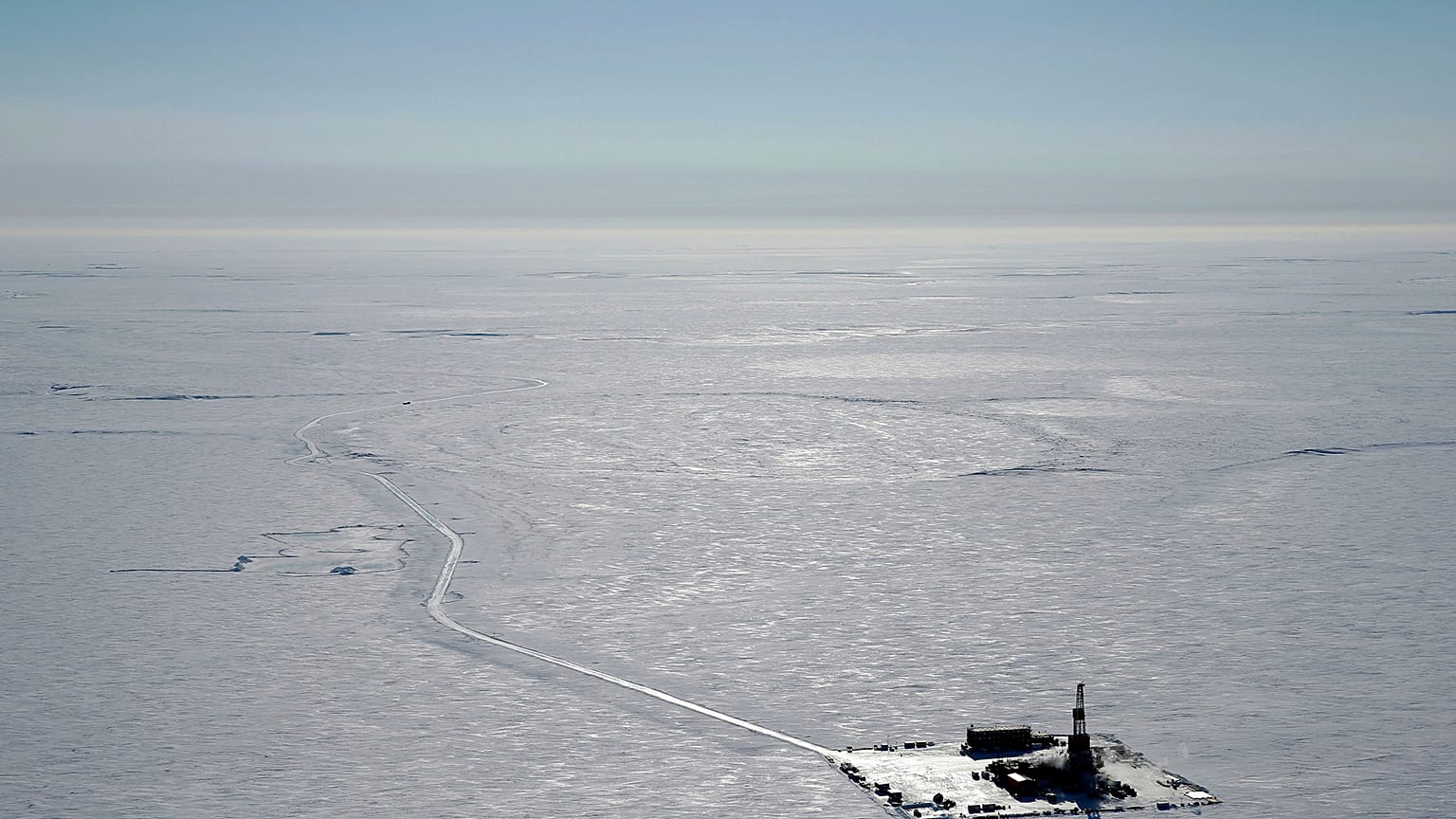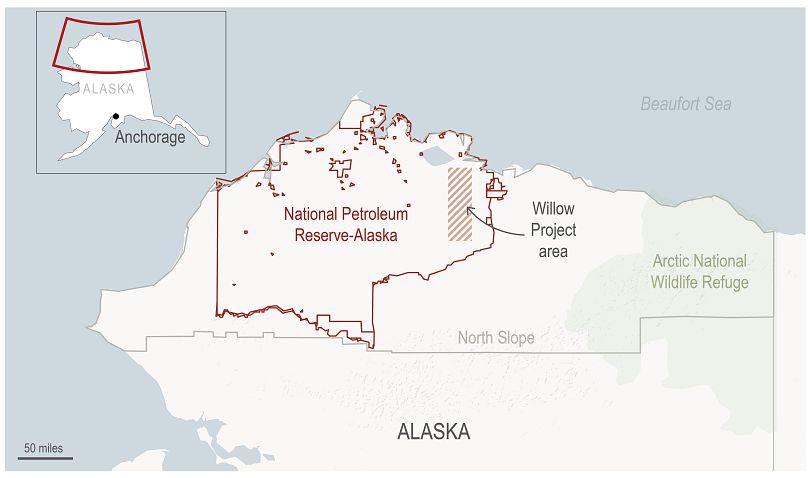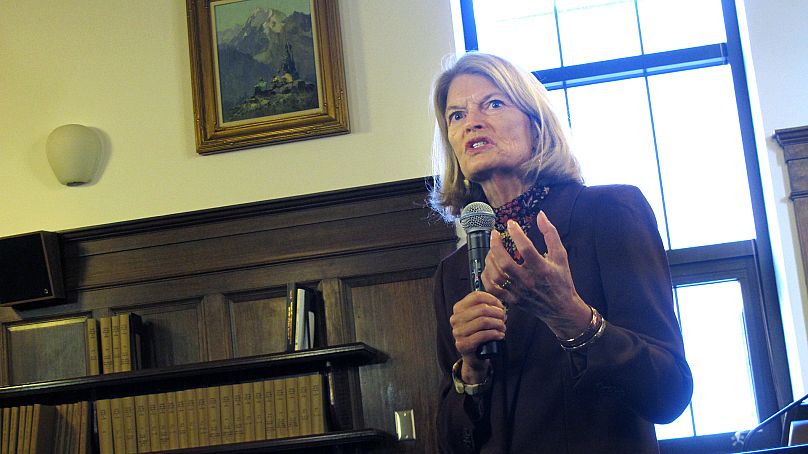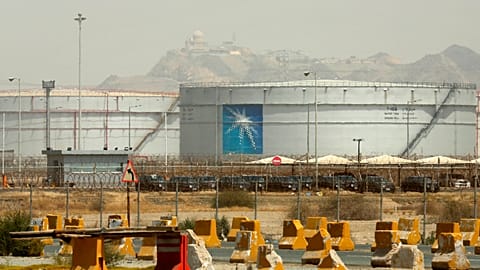The Biden administration has approved Alaska’s Willow oil project, a major drilling initiative that environmentalists say is counter to the country’s climate goals.
Environmentalists have lost the first round in their legal battle over an oil project on Alaska’s petroleum-rich North Slope.
 ADVERTISEMENT
ADVERTISEMENT
 ADVERTISEMENT
ADVERTISEMENT
Environmental groups and Indigenous groups filed two lawsuits in an attempt to block the massive Willow oil and gas project last month. They requested that a judge grant a preliminary injunction while the court considered the cases which would have stopped construction.
On Monday (3 April) a federal judge declined the injunction to block progress on the Willow project while the lawsuits proceed.
District Court Judge Sharon Gleason ruled in favour of the federal government and oil company ConocoPhillips noting that the activities planned for the next few months "do not include the extraction of any oil and gas".
She also said the groups did not succeed in showing that work on the project would cause irreparable harm before she makes a decision on the cases.
Building the project relies on ice roads meaning that delaying the start beyond April would have prevented construction for at least a year. CoconoPhillips says the ruling means they can now immediately begin construction.
What is Alaska's Willow project?
In March this year, the United States approved the major oil-drilling project on Alaska’s petroleum-rich North Slope. The ConocoPhillips Alaska’s Willow project will produce an estimated 160,000 barrels of oil per day over the next 30 years.
But environmental and Indigenous groups are suing the federal government, arguing the project would breach the country's environmental commitments.
"We will not give up protecting the Arctic today, tomorrow, or ever," said a spokesperson for Sovereign Iñupiat for a Living Arctic, one of the groups launching an appeal.
Burning the oil produced by Willow will produce 260 million tons of carbon dioxide, equal to the annual output of 66 American coal plants.
Last month, protestors interrupted an administration official delivering a speech about US climate leadership. A dozen campaigners interrupted Ali Zaidi, White House climate adviser, as he addressed an event at the Center for Strategic and International Studies.
"Keep your promise, no new drilling" they chanted.
Why has Joe Biden approved the Willow project?
The Biden administration's decision to approve the project came a day after it had said it would bar or limit drilling in some other areas of Alaska and the Arctic Ocean.
The approval of the project by the Bureau of Land Management will allow three drill sites including up to 199 total wells.
US Secretary of the Interior Deb Haaland described Willow as “a difficult and complex issue that was inherited” from earlier administrations. And she added that officials “had limited decision space” to block the project because ConocoPhillips has held leases in the area for decades.
Haaland also defended the Biden administration’s record on climate change, saying, “I am confident that we are on the right path, even if it’s not always a straight line.”
Who is taking legal action over the project?
Climate activists were outraged that Biden approved the project, which they say puts his climate legacy at risk.
Two separate lawsuits have been launched against the project.
Sovereign Iñupiat for a Living Arctic, Sierra Club, Trustees for Alaska and the Alaska Wilderness League filed a lawsuit in March. They claim that the US interior department has breached its own climate consideration guidelines by approving the project.
In a separate case, a coalition of environmental groups including The Natural Resources Defense Council, Center for Biological Diversity, and Greenpeace claimed that the department finalised the approval without addressing issues outlined in a 2021 lawsuit.
"Developing a massive new Arctic oil formation is a threat to the global climate and an already dramatically warming Arctic region," the suit claims.
What do climate activists think of the Willow project?
More than 5 million people signed online petitions urging Biden to stick to his climate promises and stop Willow from happening.
Allowing the drilling plan to go forward marks a major breach of Biden’s campaign promise to stop new oil drilling on federal lands, activists have argued.
Greenpeace USA described the project as a "betrayal" and a "climate catastrophe."
The project could produce up to 180,000 barrels of oil a day, according to the company — about 1.5 per cent of total US oil production.
A petition against the project has gained more than 3 million signatures.
"The Arctic is already warming faster than anywhere else on the planet, and the Willow Project would be a carbon bomb," said Wendy Wendlandt, president of policy group Environment America.
Who supports the Willow project?
The project enjoys widespread political support in Alaska.
The state's bipartisan congressional delegation met with Biden and his advisers in early March to plead their case for the project, and Alaska Native state lawmakers recently met with Haaland to urge support.
Those in favour of the project say it is balanced and communities would benefit from taxes generated by Willow to invest in infrastructure and provide public services.
Alaska lawmaker Lisa Murkowski said Monday the decision was “very good news for the country”.
According to ConocoPhillips, the project could create up to 2,500 jobs during construction and 300 long-term jobs, and generate billions of dollars in royalties and tax revenues for the federal, state and local governments.



















